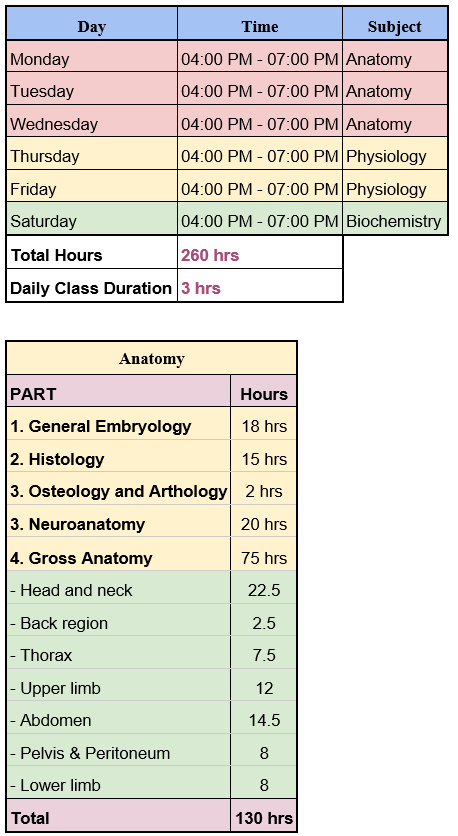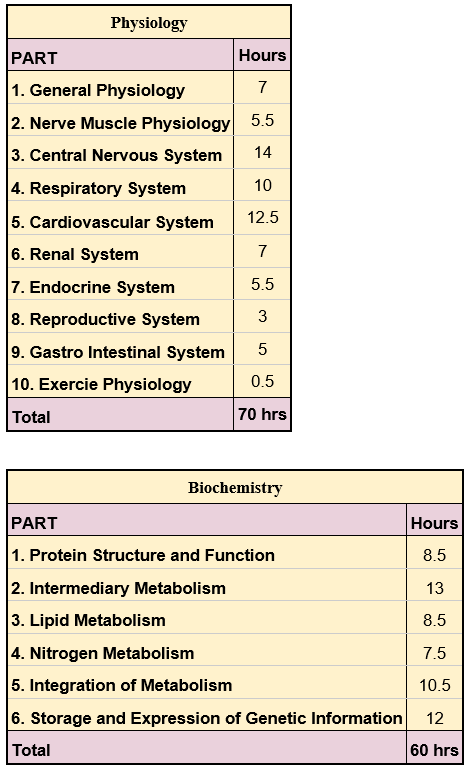MBBS 1st Year Detailed Course (Anatomy + Physiology + Biochemistry)
Description
MBBS 1st Year: Foundation for Medical Practice
The first year of MBBS is dedicated to building a strong foundation in the fundamental medical sciences: Anatomy, Physiology, and Biochemistry.
Anatomy
This course delves into the structural basis of the human body. Students explore the intricacies of gross anatomy, microscopic anatomy (histology), and developmental biology (embryology). Dissection of cadavers, coupled with advanced imaging techniques, provides a comprehensive understanding of the body's architecture.
Physiology
Building upon anatomical knowledge, Physiology explores the functional aspects of the human body. Students learn about the mechanisms underlying various physiological processes, including cellular function, nervous system, cardiovascular system, respiratory system, digestive system, and endocrine system.
Biochemistry
This course focuses on the chemical processes occurring within living organisms. It covers essential topics such as biomolecules, metabolism, enzymes, and molecular genetics, providing a biochemical perspective on human health and disease.
Together, these subjects form the cornerstone of medical education, equipping students with the essential knowledge to comprehend the complexities of human health and disease, laying the groundwork for their future clinical practice.


Loading...

